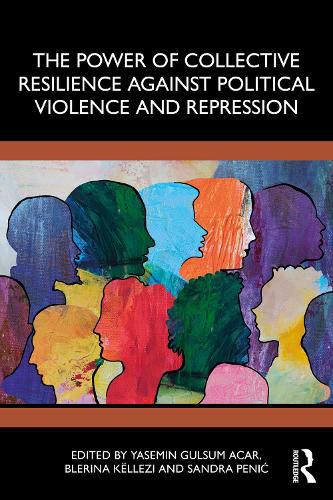Readings Newsletter
Become a Readings Member to make your shopping experience even easier.
Sign in or sign up for free!
You’re not far away from qualifying for FREE standard shipping within Australia
You’ve qualified for FREE standard shipping within Australia
The cart is loading…






This book outlines the importance of collective resilience for groups who have faced challenging or threatening circumstances, such as war and political violence.
Drawing on novel research from a range of diverse contexts, the book explores a nuanced picture of how political violence can lead to increased social cooperation and action within communities, as well as the well documented negative dynamics. It brings together researchers studying the collective resilience of civilians in the context of political violence and repression in three fields: psychological well-being, resistance and collective action, and reconciliation and peacebuilding. Chapters describe the underlying social-psychological processes behind collective resilience and discuss the limits and boundary conditions in the emergence of resilience. The book critiques and extends our psychological understanding of resilience in conflict settings, using multiple methodological and epistemological approaches as well as interdisciplinary perspectives to understand conditions, underlying processes, and consequences of collective resilience.
The Power of Collective Resilience Against Political Violence and Repression will be highly relevant reading for postgraduate students and academics in the fields of social and political psychology, and those researching intergroup relations, social change, peace and conflict. It will also be of interest to activists interested in collective action and resilience.
$9.00 standard shipping within Australia
FREE standard shipping within Australia for orders over $100.00
Express & International shipping calculated at checkout
This book outlines the importance of collective resilience for groups who have faced challenging or threatening circumstances, such as war and political violence.
Drawing on novel research from a range of diverse contexts, the book explores a nuanced picture of how political violence can lead to increased social cooperation and action within communities, as well as the well documented negative dynamics. It brings together researchers studying the collective resilience of civilians in the context of political violence and repression in three fields: psychological well-being, resistance and collective action, and reconciliation and peacebuilding. Chapters describe the underlying social-psychological processes behind collective resilience and discuss the limits and boundary conditions in the emergence of resilience. The book critiques and extends our psychological understanding of resilience in conflict settings, using multiple methodological and epistemological approaches as well as interdisciplinary perspectives to understand conditions, underlying processes, and consequences of collective resilience.
The Power of Collective Resilience Against Political Violence and Repression will be highly relevant reading for postgraduate students and academics in the fields of social and political psychology, and those researching intergroup relations, social change, peace and conflict. It will also be of interest to activists interested in collective action and resilience.